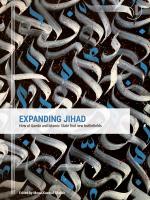Saudi Arabia has avoided internal large-scale jihadist violence
Saudi Arabia is an ambivalent figure when it comes to jihadist violence. It is often described as the birthplace of extremist ideology and a main supporter, if not founder, of jihadist violence. The country is widely seen as an exporter of extremist ideology and Saudis make up the second largest group of foreign fighters to have joined Islamic State. At the same time, both al-Qaeda (AQ) and Islamic State (IS) espouse a strong anti-Saudi narrative, openly calling for the overthrow of the Saudi regime. However, Saudi Arabia has internally been relatively spared from large-scale terrorist attacks and neither AQ nor IS seem to have been able to build a strong organizational presence inside Saudi Arabia.
This book chapter investigates local, regional and in part global dynamics that have been significant for al-Qaeda and Islamic States failure to establish a strong presence in Saudi Arabia. It points to the role of the autocratic and repressive regime and its efficient security apparatus as a key factor in containing the influence of AQ and IS inside Saudi Arabia.
DIIS Experts



